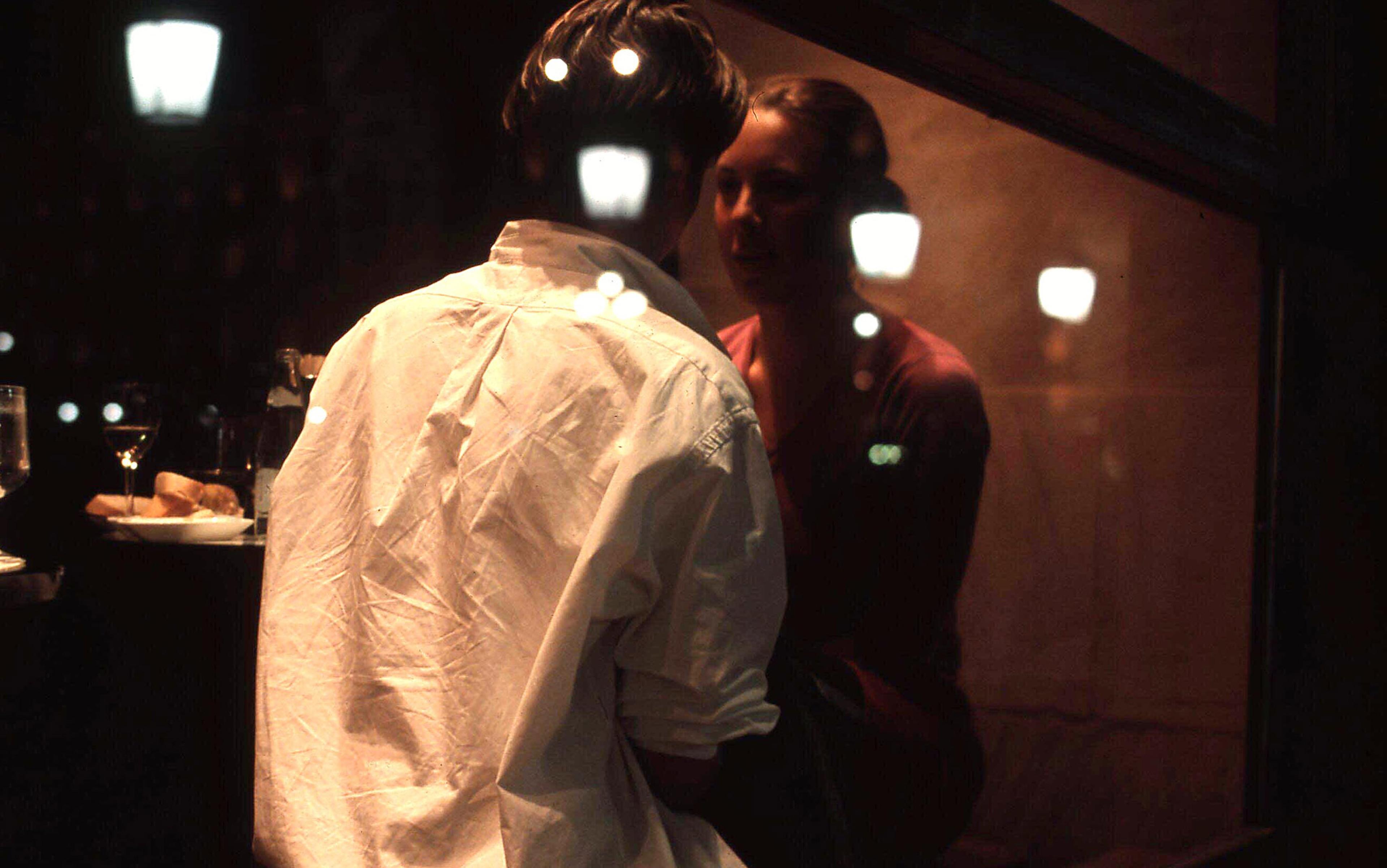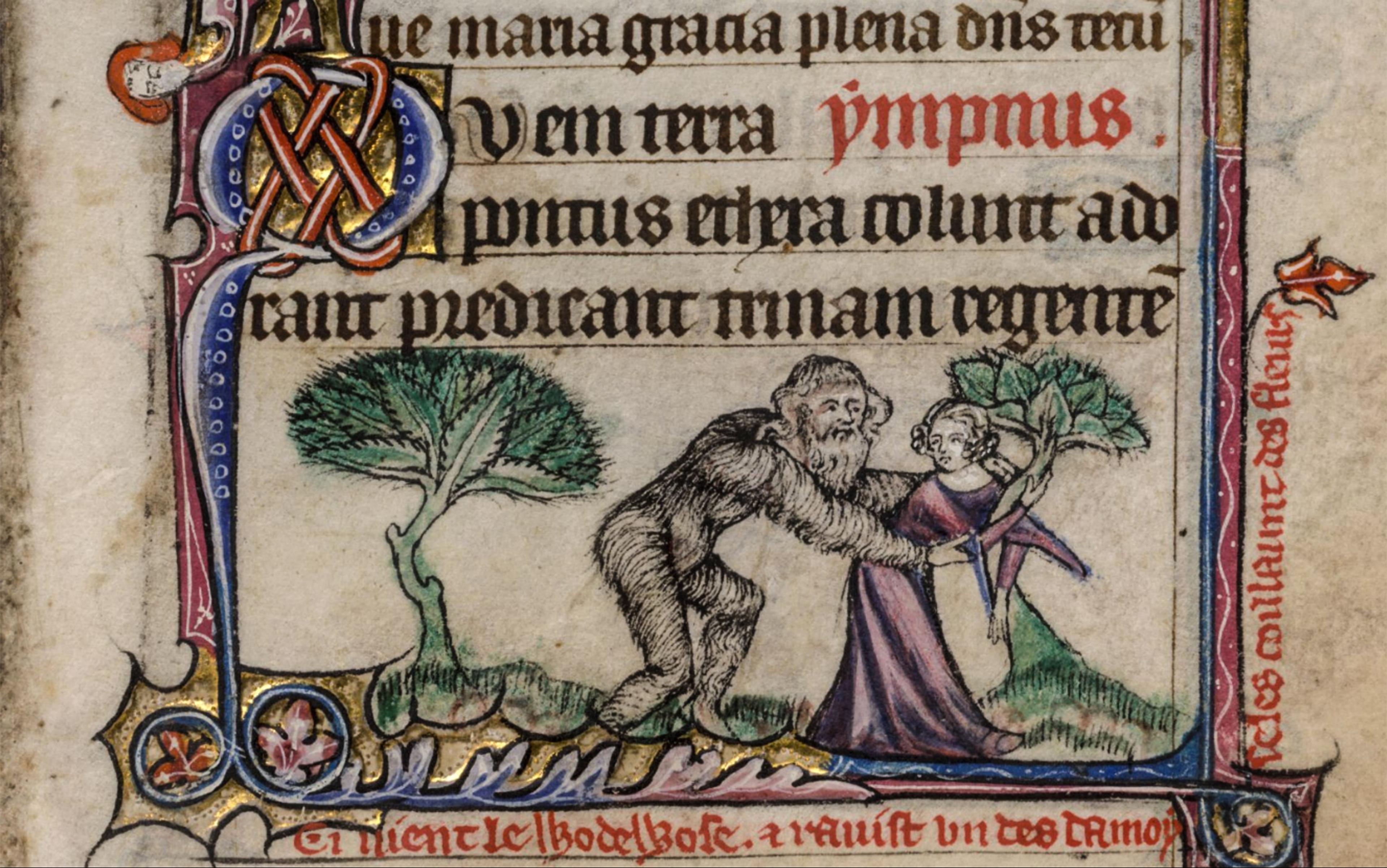‘You know, one in five women are sexually assaulted,’ my stepfather told me. I was in middle school. The age where I listened to a lot of ‘angry-girl music’ – Tori Amos in particular. She had been raped at knifepoint when she was 21 after performing a show in Los Angeles. And that must have been how the subject came up. ‘That means that it’s likely one of the girls you’re friends with now will be raped at some point in her life.’
It’s hard to get a premonition like that out of your head – especially when what begins to happen all around you feels nothing like the violent assault you imagine when you think of rape. A girl outside my main circle of five friends – all of us the type of student who made the honour roll every semester – fell asleep at a party during eighth grade. She told me that one of the boys fingered her after she passed out. ‘But it’s OK,’ she said. ‘We’re hooking up now anyway.’
‘Was that one?’ I wondered. The situation didn’t feel right; hadn’t she been taken advantage of in some way? But she seemed to think it was alright. Maybe if I’d been there I’d know for sure.
By the end of high school, there were more moments like that one: confusing grey narratives that hinted at something blacker though I didn’t have the words for what it was. Another friend confessed that she and her stepbrother had been having a relationship of sorts. She had boyfriends at school, had tried to break it off. After everyone else had gone to sleep, he was in her room anyway. How could you tell your parents about something like that? It wasn’t wrong exactly; ‘He’s just passionate,’ she said. ‘He’s in love with me.’
To most of us, crime is black and white, good versus evil. As a young girl, you are warned that danger is out there but people never suggest that you might not see it coming. Or, worse, might not know how to recognise it when it occurs or how to define it after the fact.
During my teenage years, other girls were having sex with older men – much older – and we saw it as perhaps an eccentric preference. How could it be abuse if you were willingly, happily returning for more? In Michigan, where the age of consent was 16, we counted down the days until we could legally do what we’d been doing all along. I went to a boarding school for the arts, the kind of place where problems that could send you home or to a hospital were more pressing than statutory rape. Friends had eating disorders, trouble with their antidepressants. Their parents had too much money or not enough. Kids found ways to get high on drugs that left your system quickly – Adderall, Robitussin, methadone, cocaine. They were bussed off to Alcoholics Anonymous meetings before they even hit 18.
I went to college in New York City: 18 and working in a restaurant whenever I wasn’t in school. When I started visiting and then hooking up with a crush, a fellow writer whose poems my teachers had idealised during class, I was thrilled. He was handsome in a movie star way, artistic, and – there’s no nice way to say this – a drunk. The only times we saw each other, he was either drinking or on his way to drink somewhere else. He would come over to my apartment, look at the lone, half-empty bottle of vodka and ask what mixers I had lying around.
Because his friends were my friends, we’d go out drinking – me with my fake ID – and crash on a floor or a couch or curl up like dogs on a futon. I thought I was in love (the way all teenagers think they’re in love) for a week, maybe two. Then we drifted apart to other people and other parties.
This is all a lead-up to my admitting to something I’ve only told four people in the six years since it happened. I’ve never written this down. I never mentioned it to the therapists helping me through a rough bout of depression.
They say that four-fifths of sexual assaults are committed by someone who knows the victim. It was certainly the case for me.
What happened would never fit into a Law and Order: SVU plotline. I wasn’t drugged or drunk. No one held me down while I struggled. I wasn’t even alone.
He and I and a female friend met up one night in early December. We had some drinks at her apartment. We talked about sex and love and writing because what else do writers talk about on a cold night? I beamed about some guy from school I’d started dating. Around three or four in the morning we fell asleep. The other girl slept in her bed. ‘You two were hooking up. You’re fine on the futon, right?’ It wasn’t really a question.
What happened next was carved into my memory for months. Then it wasn’t. Now dredging it up feels like remembering a story about someone else. After not thinking about it and not talking about it for so long, what happened finally faded into the realm of facts. We were sleeping. Then we weren’t. I woke up and his hands were fumbling under the blankets. Then we were having sex or, rather, he was having sex with me as I lay there, pretending to still be asleep. I didn’t want it to happen. I didn’t say no. The loudest thought in my head was that I didn’t want to wake the girl sleeping not so far away from us. That seemed more important somehow.
Maybe I wasn’t the powerful young woman I thought I was
After it was over, I tried to sleep again because it felt too early to go home. I didn’t want to explain why I’d left so early. So I lay awake on the futon for an hour or maybe two until I could say my goodbyes. I didn’t know how to describe what had happened, only that once again it felt like there was some vague black thing lurking under the grey. What happened had felt like, not rape, but maybe its younger sister – clearly related but with a personality of its own.
I didn’t speak to him or see him again but about a week later, he sent me a message online. He was as blurry as I was about what had happened, thoughts about how his time in New York made him realise ‘he still had some growing up to do’. Some poetic lines about waves and birds were thrown in for good measure. He wrote: ‘I wanted to let you know that I’m sorry for the way I acted and that our correspondence, at least, is important to me.’ I don’t know if he meant what happened that night or the drunken nights before it. Maybe they all required an apology.
I didn’t tell people what had (or maybe had not) happened. Not because I was afraid or traumatised: I was ashamed. If I couldn’t stop something like this in a studio apartment with a friend sleeping less than five feet away, what could I protect myself from? Maybe I wasn’t the powerful young woman I thought I was.
That shame didn’t go away but, over the next few years, the blurriness I felt about that night transformed into something else. A certainty that, while it didn’t feel like something to put someone in jail over, it wasn’t so different from what had happened to all my friends before. It was rape – almost.
Once upon a time, the word rape conjured up warriors pillaging villages and snatching women on to their horses. Though the image of rape we see in the media is violent and clear-cut, knowing whether or not it happened really just hinges on communication: did the other person give his or her consent or not? It’s unsettling that the simple absence of a ‘yes’ could turn someone whom you thought you knew into a criminal. But it can.
There is a controversial term for non-violent assaults like this: grey rape, which refers to sexual contact that was not consensual but does not, to the victim, feel exactly like a crime. I’d only ever heard of violent rape through stories about people such as Tori Amos, in movies, or on television; I still saw that as the definition of sexual assault – not the blurrier version that happened first to my friends and then to me. What happened to me was not what came to mind when I thought of rape. So, by extension, I figured it must be a different thing entirely. But if you look at the low percentage of sexual assault committed by strangers – only 11 per cent with a weapon – we’ve been thinking about rape all wrong.
The psychologist Heather Littleton, a professor at East Carolina University and an expert in trauma after sexual assault, explains that people have mental maps that help them categorise different situations and tell them how to behave. This can be anything from how to greet a new person to how to eat at a restaurant – the ever-hated small talk that seems almost comically scripted is another great example.
Littleton proposes that sexual assault also has a set narrative. It typically involves a young, pretty victim and violence, or at least intoxication. Today because of media attention on college rape, often accompanied by parties and alcohol, the image we have of sexual assault has opened up a little. ‘Still, a lot of those violent assault characteristics remain,’ says Littleton. ‘People think that’s the typical rape and it isn’t at all.’
The problems caused by this mental categorisation go far beyond this misunderstanding. ‘If you don’t have a script for an event, you don’t know what’s going on or what to do,’ Littleton adds. ‘That can affect whether you’re able to resist or what you do in that situation.’ It also might shed some light on why so many victims say that someone had sex with them without their consent but then, when asked if they were raped, say no.
Myself included – for a time.
A few years after the event, a boyfriend was invited to a party likely to be attended by my assailant (‘attacker’ still feels too strong a word). I was at a loss to explain why I didn’t want him to go. I’d already told him what had happened to me, couching it in the same vague terms I’d always used to describe it to myself. We were sleeping and I guess he just kind of had sex with me. Or something. My boyfriend didn’t think that sounded bad enough to keep him from going. At the zenith of the argument I bawled: ‘He raped me.’
I’d never said those words out loud. Even in my head, the sentence ended not with a period but a question mark. Firmly identifying what happened in that way not only made my assailant guilty of a serious crime, but made our mutual friends complicit in the act. The girl who had been sleeping not-so-far-away had, by now, heard my blurry version of what had happened – yet she still invited him to parties and even set him up on dates with her other friends. Your life can go on as usual after maybe-rape-maybe-not because you can treat it as nothing more than a (serious) misunderstanding.
After I said it, I quickly went quiet, already trying to retract the statement in my head. ‘Well,’ he said, ‘that’s not how you’d made it sound.’ And then he went to the party anyway.
Littleton and many others have found that women who acknowledge what happened to them – as rape, not just some nebulous mistake – seek more support. ‘But they don’t want to label themselves as a victim or think something really bad about someone they care about or who is in their social network.’ By telling the full story, you’re forcing people to choose sides.
If my assailant had been on the periphery of my social circle – a friend of a friend who just happened to wind up at a party – I would have had few qualms about labelling him a rapist. The decision to upend your social life isn’t an easy one, regardless of the egregiousness of the violation that started it. Once you call it rape, there’s no going back.
So-called grey rape is often seen as less malevolent by victims and outsiders alike. Yet according to the psychologist Jim Hopper of Harvard Medical School, who specialises in the long-term effects of sexual assault, unacknowledged victims can still suffer significant mental health consequences. ‘If you don’t understand what happened to you, it doesn’t change the fact that it was bad.’
He added: ‘We can call this non-violent rape, but it’s a horrifying experience. There’s fear involved; there’s shock; there’s horror.’ Often it takes the victim a moment to process what is happening to her: when she does, the fear circuitry activates and releases stress chemicals. ‘These chemicals are known to hit the prefrontal cortex and impair it,’ Hopper told me. The effect is similar to being scared on a rollercoaster – an inability for complex thinking, only Oh my god let me off. Get away over and over again.
I had not identified myself as a victim to any of the experts I interviewed. I inched around the question when people asked what had brought me to the topic
‘You can pass out, become frozen, and leave your body and hear the sounds of traffic on the street below. Your brain has checked you out of these horrible sensations,’ Hopper said of some victims’ experiences. ‘All of that stuff can happen in a “non-violent”, non-stranger rape.’ When anyone, from a friend to an investigator, is listening to a victim recount her story, they often focus on how well she knew the perpetrator, if anyone was nearby, whether the event was violent. ‘But if you look at the experience of the victim, to have your needs, your experience, your will, ignored by someone you thought you could trust… it’s a horrifying experience.’ Hopper went on to describe the accompanying shame that comes from being assaulted: the cycle of blaming yourself for not resisting, not calling it rape, then blaming yourself instead.
In researching this story, I had not identified myself as a victim to any of the experts I interviewed. I inched around the question when people asked what had brought me to the topic. It felt too awkward. As a result, my interviewees spoke to me, but about women whose experiences fit mine exactly. To have your biggest, most shaming secret recounted in detail by voices on the phone is a singularly strange experience. Especially when you’ve felt like an outlier for so long. It’s even more surreal to discover that, unfortunately, your experience is all too common. Perhaps, instead, it is the women who see every sexual experience as clearly defined who are the odd ones out.
Labelling these events has consequences. If someone were to ask me whether all rapists should be punished for their crimes, my ‘Yes’ would come without hesitation. If I acknowledge what happened to me as rape, the logical next steps in my script are to go to the police, press charges, and attempt to sentence someone I knew, and had once respected, for a serious crime. ‘The whole purpose of the criminal justice system is to assign blame,’ said Mary Koss, the Regents’ professor at the University of Arizona, author of the first national US study on acquaintance rape, and a proponent of ‘restorative justice’, an auxiliary system for dealing with sexual assault. While a crime is a crime, Koss acknowledged that there are different circumstances for each victim and her attacker. ‘We need to be thinking about a process where we can adapt to that heterogeneity.’
Her first concern is for the victims who often bear the brunt of criminal proceedings. ‘In theory, we’re assigning blame to the perpetrator, but we all know that in the process people evaluate the blame they want to assign to the victim.’ Rather than putting criminal proceedings in the hands of prosecutors, restorative justice empowers the victim and is focused on repairing the harm caused by an act rather than doling out punishment for it. Koss, whose work often focuses on college students, is frequently confronted with people who – as I was – are deeply conflicted about the effects of coming forward. ‘They don’t want to ruin a person’s life, but they do want to tell their story,’ Koss said. ‘They want to be validated and believed and seen as legitimate.’ Three things that, unfortunately, can be hard to find.
Restorative justice comes with some important caveats: offenders must be first-timers who admit their culpability and show real remorse. A version of this process can work alongside the criminal justice system – this is not an either/or. For unacknowledged victims who are confronted with a choice between silence and the possibility of putting someone in jail for committing a crime that doesn’t feel to them quite like a crime, this third option might provide a welcome relief. Especially in the first years after I was assaulted, being heard was the panacea I never felt I could ask for.
Frankly, while it’s not comfortable to label yourself as a victim of sexual assault – especially after spending years denying it – it is better than the alternative: the years of self-questioning and niggling reminders that you failed yourself in the one moment when it mattered.
I still feel uncomfortable saying the words ‘I was raped’ out loud. Even after realising how common my experience is, I still can’t make that sentence fit it. And years after I’ve lost touch with the group of people whom this admission might affect, perhaps that fear that they’d side with him is still with me too. Today, at least I can tell my story. And I call that real progress. People like me are referred to as ‘unacknowledged victims’ and the synonyms make the impact painfully obvious: unacknowledged, overlooked, forgotten, ignored. But hopefully not forever – not for all of us.






